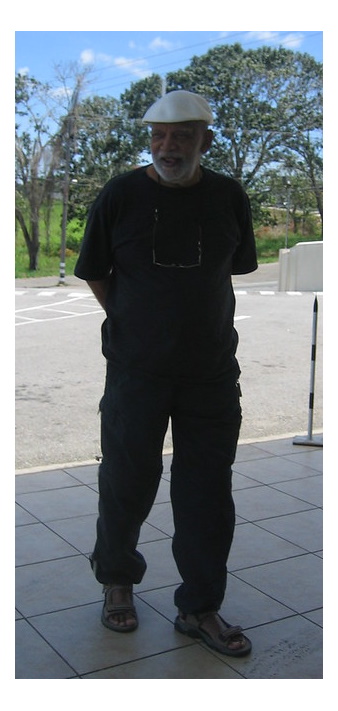
Happy Emancipation Day, Trinidad and Tobago.
I have no personal stories related to Emancipation other than my father’s death coinciding some years ago, but I think this falls under ‘Emancipation from Bureaucracy’.
My late great-Uncle on my paternal grandmother’s side was quite a character, someone who lead an interesting life. Before he died, he would visit and he would tell me of his youth, late into the night.
One such story he told me involved his uncle, Simbhoonath Capildeo. As he told the story, as a young man he built his own bicycle. Once built, he rode it to show a police friend at the local police station somewhere in Chaguanas, Trinidad, and was promptly charged with not having a license for his bicycle. This would have happened around the World War II period, perhaps a little after.
There was a time when you needed a license for a bicycle in Trinidad and Tobago, and it ends up the only places you could get such a license were the places that sold them. Having built his own bicycle from spare parts, he couldn’t get a license.
He was a scared young man in the Chaguanas courthouse one day when his Uncle Simbhoo saw him and asked him why he was there. From the way Uncle Ram explained it, he was intimidated by the courthouse, and then having one’s Uncle show up when you’d broken the law just added to his anxiety. Still, he explained to Uncle Simbhoo, and Uncle Simbhoo said he would represent him.
And so he did. From what Uncle Ram said, Simbhoonath Capildeo argued that the law regarding bicycle licenses was unconstitutional since it didn’t allow young, bright people to build their own bicycles, using their own abilities and what was available to do so because licenses were only available from people who sold bicycles. Uncle Ram begged off a bit in the story here since he didn’t understand all the intricacies, but the result was he owed no debt to society for building his own bicycle.
I haven’t tried to verify the story; it was during the times of British rule in Trinidad and Tobago and I’m not sure that records exist for that era anymore, and if they are there, how I would even start looking. I imagine there would be a lot of mundane stuff to leaf through on tattered pages in a dark and dusty room somewhere. This doesn’t mean I wouldn’t like to check it’s veracity, it means it’s a good story and I’d like to believe it. Even if it’s not true, it’s a good story, and we could use a few good stories.
I would like to believe it’s true. And if someone has ideas on how to check, or wants to check independently, feel free to let me know!
It’s no mistake at the time that I had been talking about Lessig’s Free Culture at the time with him.